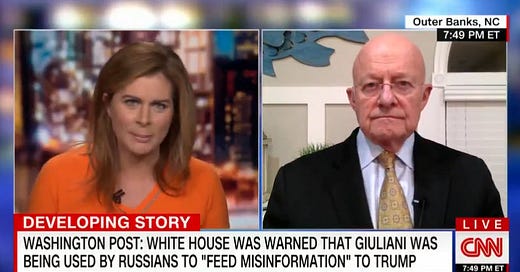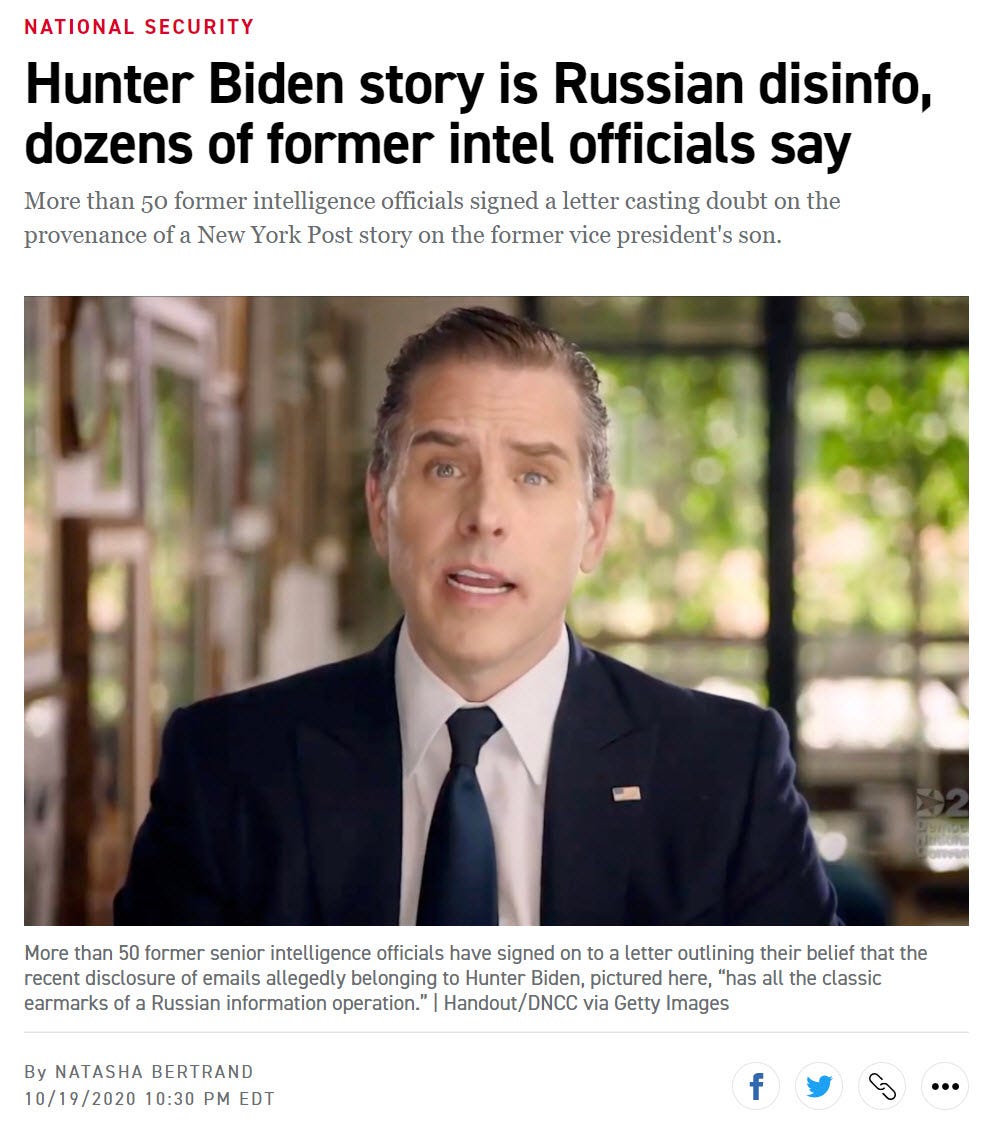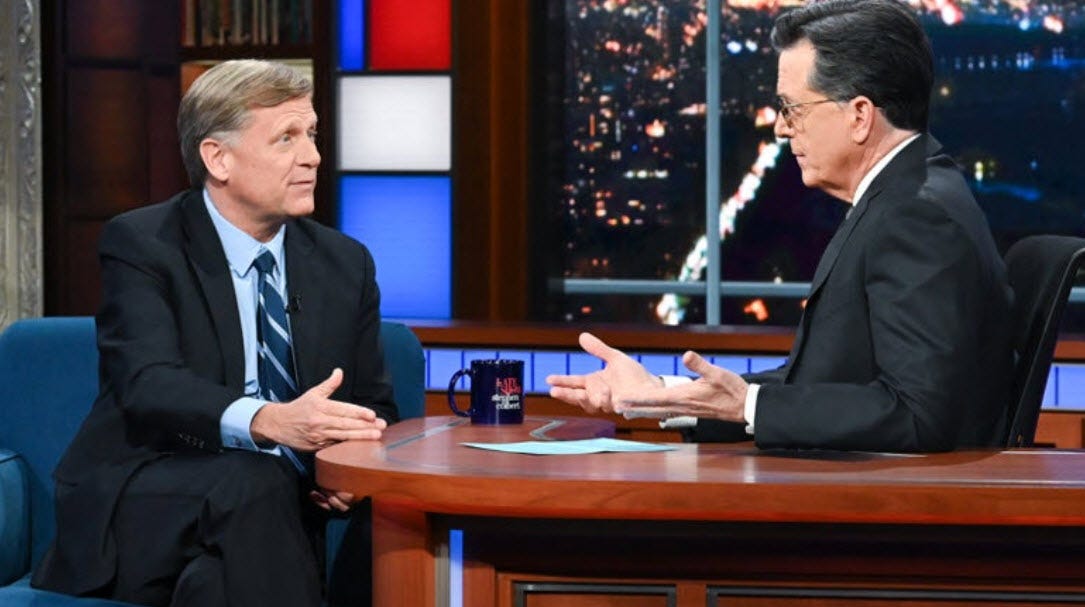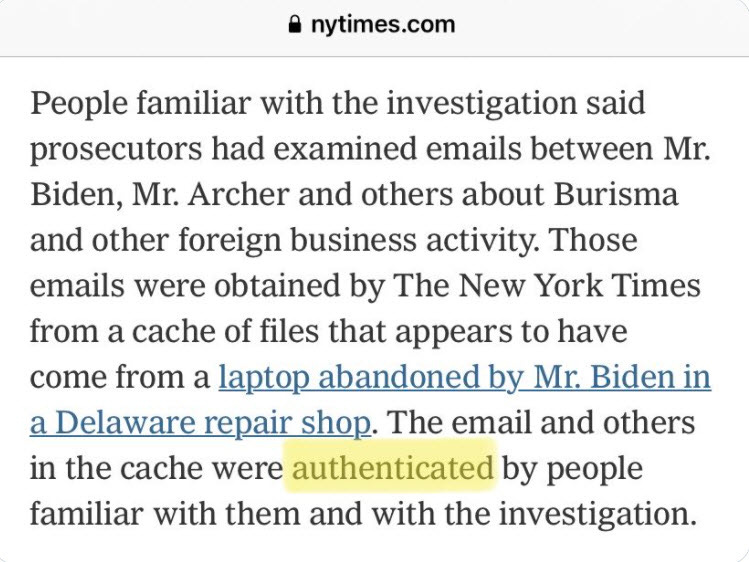Real Collusion: Big Tech, Media, and the Intelligence Community
The 2020 election was marred by a highly effective information Iron Curtain.
“To me, this is just classic textbook Soviet Russian tradecraft at work.”
That declaration about the Hunter Biden “Laptop from Hell” was annunciated on October 16th, 2020 – in the middle of a tight and highly contentious presidential election campaign, by former Director of National Intelligence James Clapper. He took to national TV on CNN and dismissed the bombshell laptop information as a ruse perpetrated by enemy intelligence.
The same James Clapper, incidentally, who lied to all of America under oath when he swore that his NSA was not illegally collecting data on millions of Americans, and paid no price at all for his clear crime. Clapper’s absurd 2020 determination on CNN added to the prior, equally unfounded, pronouncement from dozens of former high-ranking Intelligence Community officials attacking the laptop as a Russian propaganda tool.
That Politico story, faithfully relayed by the Intelligence Community’s loyal stenographer Natasha Bertrand (now with CNN, naturally), formed the supposed basis for a near-total media blackout on the Laptop story and a concomitant Big Tech suppression of the explosive allegations against Joe Biden.
On the media side, legacy platforms only mentioned the Laptop in passing, framing it in the most dismissive terms possible, then completely buried the story in a concerted blackout. In part, these malevolent media mavens tried to shelve the revelations as merely salacious details regarding Hunter Biden. In reality, the dangerous and troubling Laptop information revealed Hunter as simply a troubled bagman for the Biden Cartel as it collected millions of dollars from the most potent foreign enemies of America. But the crux of the story was — and is — the “big guy” Joe Biden who received 10% of all dirty money deals, according to his own son, whom Joe happily exploited.
But corporate media also hid behind the forgery ruse proffered by Clapper and three former CIA chiefs: Brennan, Hayden, and Panetta. For example, current White House Press Secretary Jen Psaki, then with CNN, disparaged the evidence as “Russian disnfo.” Taxpayer-supported National Public Radio excused its blackout: “we don’t want to waste our time on stories that are not really stories.” The always dependably wrong Michael McFaul of MSNBC, former Ambassador to Russia and current tenured Stanford professor, disdained the superb NY Post reporting on the Laptop as “a hit piece so false that Twitter won’t even post it.”
To McFaul’s point about Twitter suppression of the story, herein lies the main policy takeaway from the entire sordid saga. In a more rational country, we citizens would hope for some media contrition, now that even the biased and disgraceful New York Times concedes that the Laptop is totally authentic. But do not hold your breath awaiting such self-awareness and introspection from some of the most duplicitous powerbrokers in American public life.
So, instead of simply relying on fanciful hopes that a more honest legacy media will somehow emerge, what are the policy solutions to prevent this kind of suppression and manipulation going forward? The answer lies in using government power to deconstruct the mammoth power of Big Tech.







